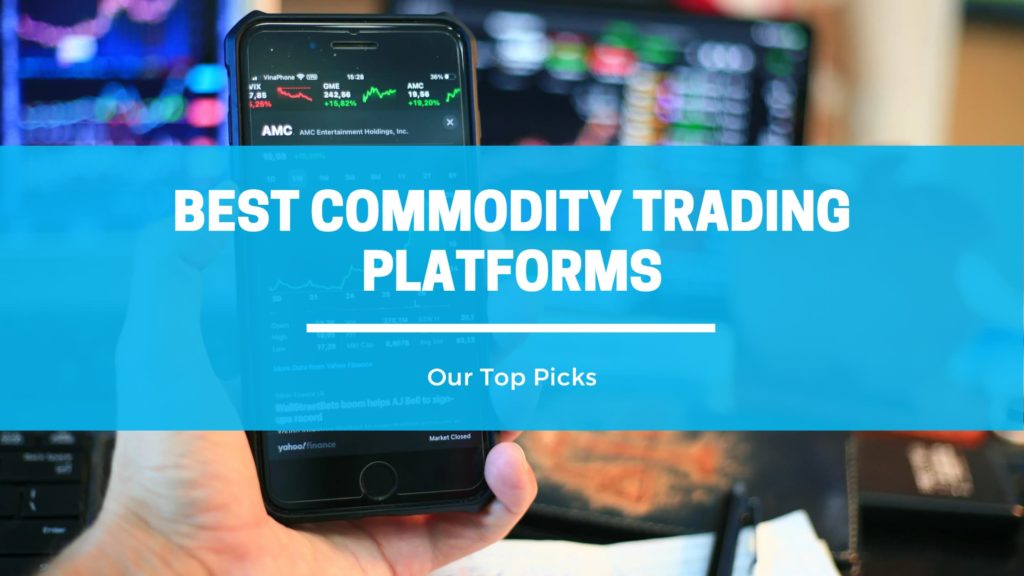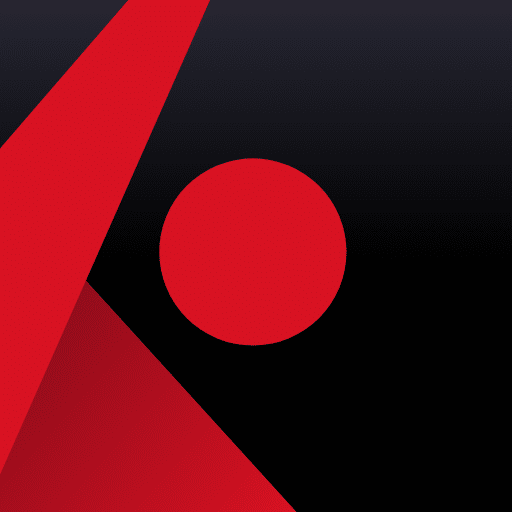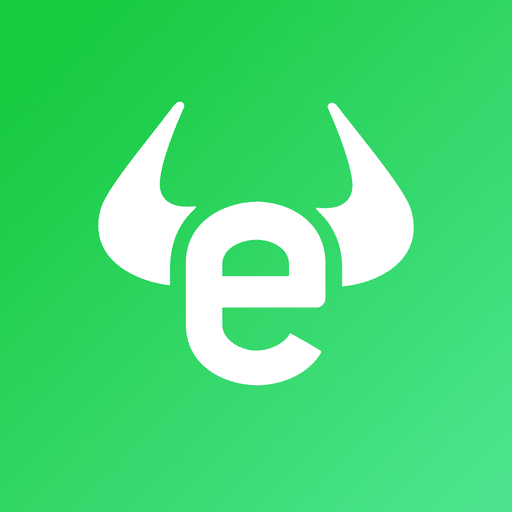Finding a commodity trading platform is the first step for any commodity trader. There is more than just fees and trading platforms. A commodity broker should offer the highest level of real-time data and quotes, an easy-to-use platform, research, charting and screening tools, and technical indicators.
If you’re a beginner, finding a broker with great educational and research materials is a must.
Best Commodity Trading Platforms in 2023
When compiling this list we considered fee structures, trading platforms, research, and educational content offered by the brokers.
| Trading Platform | PFI Score | Fees | Minimum Deposit | Website |
|---|---|---|---|---|
| Interactive Brokers | 5/5 | $0.25 - $0.85 | $0 | Visit >> |
| TradeStation | 4.6/5 | $0.85 | $0 | Visit >> |
| E-Trade | 4.5/5 | $1.50 | $0 | Visit >> |
| Lightspeed | 4/5 | $1.29 | $10,000 | Visit >> |
| Charles Schwab | 4.8/5 | $2.25 | $0 | Visit >> |
| TD Ameritrade | 4.9/5 | $2.25 | $0 | Visit >> |
What is Commodity Trading?
A commodity, in simple terms, is a commercial good that is interchangeable with other commercial goods of the same kind.
Commodities trading used to required vast amounts of time, money, and know-how. Because of this, it was seen as being reserved for professional traders.
This has changed and today, there are more options available for traders to participate in the commodities market exchange.
Trading commodities has a longer history than stocks and bonds. The rise of many empires has been attributed to their creation of complex trading systems that aided the trading of commodities.
A commodities broker is usually a firm or an individual that facilitates trades on behalf of traders and investors. This service is charged at a commission and varies from broker to broker.
Commodities contracts can include options, futures, and other financial derivatives.
Types of Commodities
Energy
Energy commodities are crude oils, heating oils, gasoline, and natural gasses. Oil prices have increased due to the reduced oil outputs and an increase in demand.
If you want to invest in energy, you should be aware of the economic downturns. The prevalence of renewable energy plants like wind, solar, and biofuel has also impacted the price of energy commodities.
Metals
Common metal commodities are silver, gold, copper, and platinum. These commodities are stable and reliable. Investors can turn to metal commodities during times of market volatility.
Investors could also decide to invest in metal commodities as a hedge in times of inflation.
Agriculture
Agricultural commodities are soy beans, corn, grain, wheat, rice, coffee, cocoa, sugar, and coffee.
You should keep in mind that when investing in agricultural commodities, that grains can be volatile during summer. These commodities are also influenced by weather-related transitions.
Livestock and Meat
Livestock and Meat commodities are pork bellies, lean hog, feeder cattle, and live cattle.
Investing in Commodities
Here are a few methods for investing in commodities
Futures
One of the common methods to invest in commodities is through futures contracts. A futures contract is a legal agreement to buy and sell a contract that has underlying commodities attached to it. This is done at a predetermined price and a predetermined date.
Generally, there are two kinds of investors that invest in commodities through futures contracts. There are commercial traders and institutional traders.
An advantage of this method of investment is that analysis is much easier because of the pure play on the underlying commodity. With this method, you also have the potential to make great profits.
Stocks
Another method of investing in commodities is to invest in the stock of companies that are related to the commodity you wish to invest in, in some way. Examples of this are investing in the stock of oil companies or agricultural companies.
A benefit of this method is that stocks are less volatile to price swings than futures contracts. Stocks are also easier to hold, trade, and track.
However, you should do your research before investing in companies.
ETFs
An additional option for investors wanting to invest in commodities is through exchange-traded funds (ETFs) and exchange-traded notes (ETNs). ETFs and ETNs are similar to trading stocks.
A benefit of this is that you can earn a profit from the fluctuations of the commodity prices without having to invest in futures contracts.
An additional benefit of this method is that there are no management or redemption fees with ETFs and ETNs because they trade like stocks.
Commodity ETFs can use futures contracts to track the price of a particular commodity.
Keep in mind that not all commodities have ETNs and ETFs associated with them.
Mutual and Index Funds
Mutual funds cannot be used to directly invest in commodities. However, it can be invested in stocks of companies that are related to commodities industries like energy companies.
Much like stocks, mutual and index funds are influenced by the fluctuating prices of commodities, general stock market fluctuations, and company factors.
A benefit of using this method is that you get professional money management, added diversification of your portfolio, and increased liquidity.
But, keep in mind that management fees can be high.
Commodity Pools and Managed Futures
Commodity pool operators (CPO) are people or partnerships that pools money from investors intending to invest the money in futures or options. The CPOs will regularly distribute account statements and annual financial reports to their investors.
A benefit of using this method is that investors receive professional advice from a commodity trading advisor (CTA) that is employed by the CPO.
Pooled structures also have the benefit of more money and increased opportunities for a manager to invest.
Picking a Commodities Broker
Safety and Regulation
This is one of the most important factors you should consider when choosing a commodities broker. Brokers are regulated by financial organizations or institutions to protect customers.
Regulators also decide which countries brokers can operate in.
It is important to check whether a broker is regulated to ensure the safety of your money and assets.
Fees & Commissions
Fee structures and commissions vary from broker to broker. This information should be readily provided on the broker’s website. It is important to go through the fee structures so that you know what you’re getting yourself into.
Additional fees that brokers can charge are inactivity fees and account minimums. These fees can also vary from asset class to asset class.
Customer Support
Whether you’re a newbie or an advanced trader, the customer support a broker offers should be a priority.
You should check the kind of customer support a broker offers. Do they offer email support, live chat, or phone support? It is also important to check how responsive the customer support services are.
Education and Research
This is an important aspect to consider when choosing a broker. Whether you’re a beginner or a professional trader, you should go for a broker that has a robust selection of educational content, research content, and research tools.
If you’re a beginner, you might want to invest in a broker that offers a paper trading account to get a feel for the platform and trading.
Educational content and research are also important when developing a trading strategy.
Trading Platforms
The broker you choose should provide a trading platform that is easy to use and that offers a plethora of trading tools. Check for key features like charting, platform design, and technical analysis tools.
You should also check if their platform offers a mobile app or in-browser mobile trading. This is essential if you have an active lifestyle
Types of Commodities Brokers
There are different kinds of commodities brokers. Here are the most common kinds of commodities brokers
Futures Commissions Merchant (FCM)
An FCM is an individual or firm that accepts and solicits orders for commodities contracts on the exchange on behalf of clients. They also hold client funds to margin. FCM’s operate similarly to a securities broker-dealer.
Floor Broker/Trader
A floor broker or floor trader trades commodities contracts on the floor of a commodities exchange. They generally act as a broker and conduct trades on behalf of clients.
Floor brokers can also act on their accounts or the account of an employer.
Introducing Broker (IB)
An IB is an individual or a firm that accepts or solicits orders for commodity contracts on an exchange. However, unlike an FCM, the IB does not hold customer funds to margin.
Commodity Pool Operator (CPO)
A CPO is a firm or individual that pools resources from multiple investors and manages this as advised by a CTA. A CPO is similar to a mutual fund.
Commodity Trading Advisor (CTA)
A CTA is a firm or individual that advises traders on trading commodities contracts for a fee. They can act as advisors for community pools or traders. Like an IB, a CTA does not hold margins funds for customers.
CTA’s can also act with power of attorney over client accounts on behalf of the client and according to the client’s trading objectives.
Registered Commodity Representative (RCR)
An RCR is an employee, officer, or partner at an IB, CTA, CPO, or FCM. They are registered and licensed to do work for the FCM, IB, CPO, or CTA.
Commodity Exchanges
Commodity brokers can trade commodities on exchanges that specialize in trading different commodity types.
Commodity exchanges include the Chicago Board of Trade (CBOT) and the New York Mercantile Exchange (NYMEX). These exchanges trade in agricultural commodities and energy commodities.
The Intercontinental Exchange (ICE) trades in energy commodities.
Principles of supply and demand are what drive commodity exchanges. Changes in supply impact the demand. This can also impact, and cause, price fluctuations of the commodities.
You should keep in mind that the different commodities are impacted by different things. For example, agricultural commodities are impacted by weather changes. With livestock and meat commodities, illnesses in animals can impact supply.
Global economic development and advances in technology also impact and causes price fluctuations. An example of this is the emergence of India and China as players in manufacturing which increased the demand for metal commodities.




